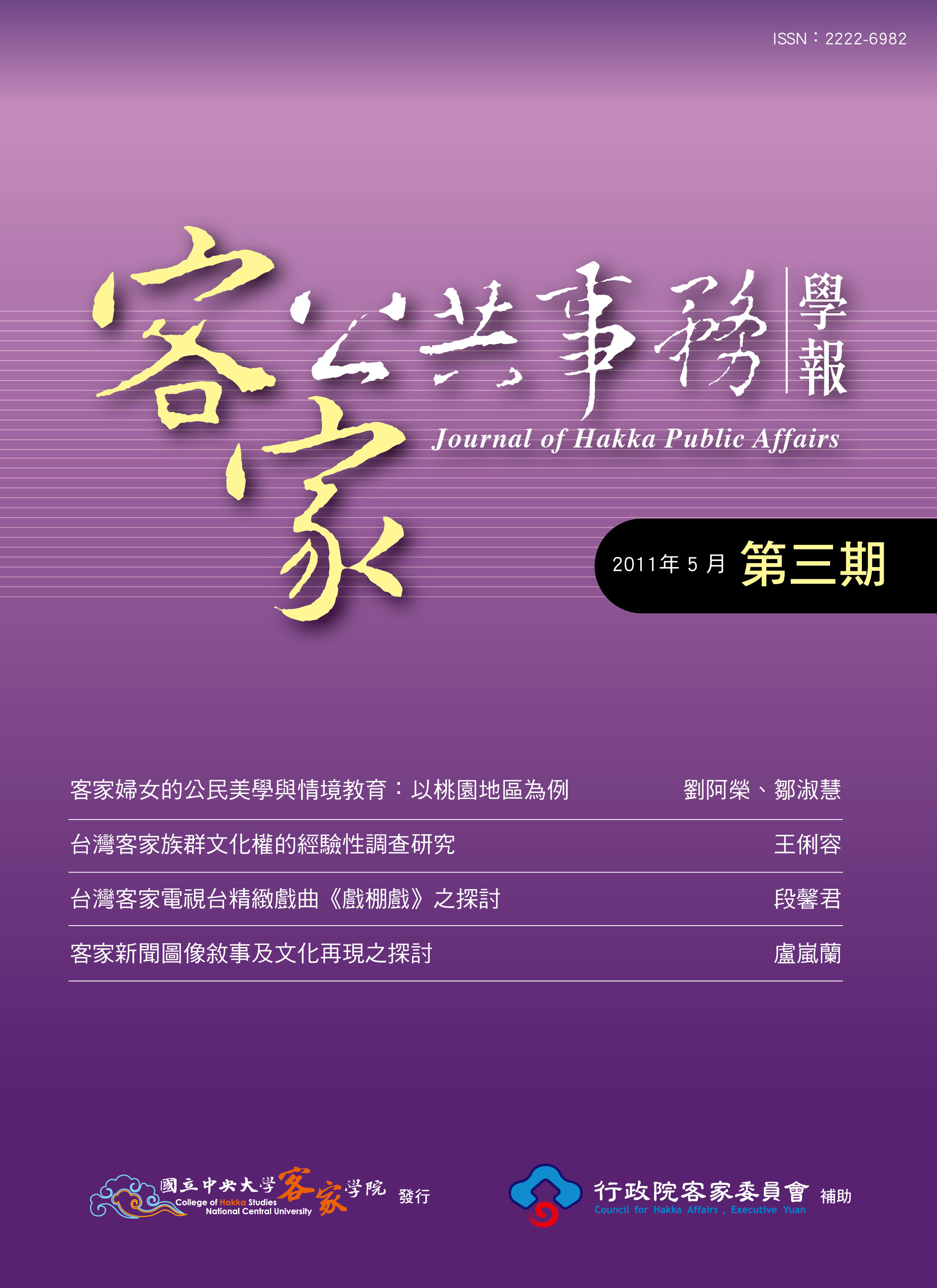Hot News
| 中文篇名 |
台灣客家族群文化權的經驗性調查研究 | |
|---|---|---|
| 英文篇名 |
The Survey of Cultural Rights for the Hakkas in Taiwan | |
| 中文摘要 |
自1990年代以來,西方民族國家經歷了一連串的「權利革命」,於各種新的權利訴求中,思索著歸屬與排斥的問題,例如:原住民權、女性權、同志權,到文化權等。這些新權利的生成與建構,連結著對於公民權(citizenship,或稱公民身分)的概念與認知。隨著跨國移民與文化穿越國界的情況不斷增加,多元文化主義的蓬勃發展,文化權的呼籲更變得日漸重要。台灣經驗的民主轉型與政治改革,激發原住民運動與客家運動的興起,促成了族群意識與權利的發展,1997年,《憲法》繼續強化族群的特殊權利,並宣稱台灣為多元文化國家。隨著原住民委員會與客家委員會的設立,政府多元文化政策蓬勃發展,但目前在台灣文化權發展的狀況與落實的情形仍未受到太多的重視。因此,本文探討這幾年來台灣客家族群文化權的發展與落實狀況,並提供相關政策建議。 | |
| 英文摘要 |
Since the 1990s, Western societies have experienced a "rights revolution" to consider the issues of belonging, identities, and social exclusion related to aboriginal rights, gender rights, gay rights and cultural rights. These concepts of new rights have a strong linking with "citizenship". With the increase of transnational communities and migrant cultures as well as the development of multiculturalism, the claims of cultural rights are becoming significant. From the 1980s, the Taiwanese society has experienced political reforms and democratic transformation and inspired the development of the Taiwanese aboriginal and the Hakka movements, which improved ethnic consciousness and ethnic rights. In 1997, the Constitution of the Taiwanese government claimed that Taiwan is a multicultural country; afterwards, the establishment of the Committee of Aboriginal Affairs and the Committee of the Hakka continued to develop multicultural policy. Therefore, this paper hopes to explore that the real development of cultural rights for the Hakkas in Taiwan, and provide the suggestion to practice it in cultural policy. | |
| 關鍵詞 |
文化政策、文化權、客家研究、族群權、cultural policy、cultural rights、the Hakka studies、the aborigines studies | |
| 刊名 | ||
| 期數 | ||
| 起訖頁 |
33-66 | |
| 出版單位 | ||
| 上一篇 | ||
| 下一篇 |



